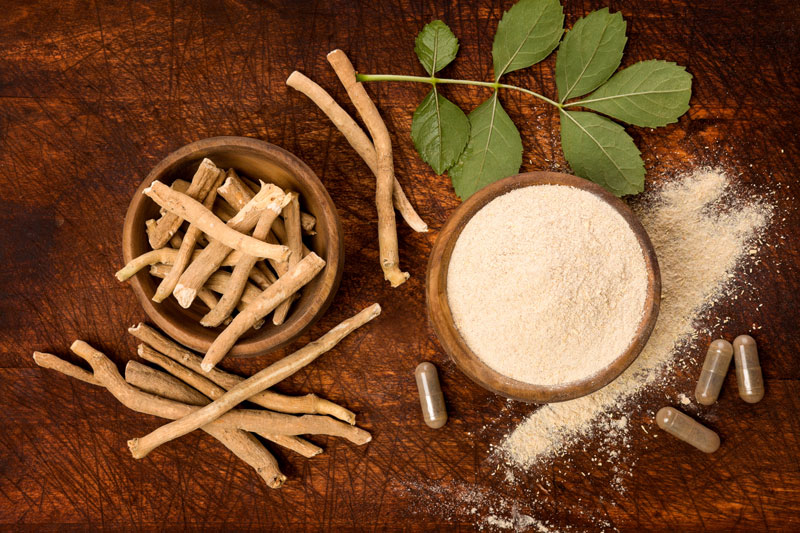Ashwagandha
 Ashwagandha is one of the most important herbs in Ayurveda, it’s an alternative remedy based on Indian principles of natural healing. Ashwagandha, also known as Indian Ginseng, has been used for more than 3,000 years to improve focus, lower stress levels and give you an energy boost.
Ashwagandha is one of the most important herbs in Ayurveda, it’s an alternative remedy based on Indian principles of natural healing. Ashwagandha, also known as Indian Ginseng, has been used for more than 3,000 years to improve focus, lower stress levels and give you an energy boost.
In Sanskrit, Ashwagandha translates to, “smells (gandha) like a horse (ashwa)” – this refers to the plant’s distinctive odor and potentiality to improve strength. “Somnifera” in Latin means “sleep-inducing”.
Withania Somnifera Or Ashwagandha – A Brief History
Withania somnifera goes by several names, which include Indian Ginseng and Winter Cherry. The Ashwagandha plant is a compact bush with yellow flowers that’s endemic to India and North Africa. The plant’s roots or leaves are used to help remedy a variety of ailments.
What Are Withanolides?
Withanolides are the active compounds of Ashwagandha and are mainly found in the plant roots. These composites have many benefits due to their antioxidant, anti-inflammatory, and hormone-balancing properties. As a result, Ashwagandha is also called an adaptogen, which is used to counter aging, increase immunity, treat insomnia, and relieve joint pain among other things. Many of its virtues are due to its high accumulation of withanolides, which have been found to inhibit inflammation over time.
Uses For Ashwagandha
Ashwagandha roots have a variety of historic & traditional uses (not FDA approved), including:
- Herbal tonics
- Fertility
- Strength
- Sedative
- Promotes Diuresis
- Thermogenic and astringent
Due to all of its anecdotal benefits, the plant is referred to as a Rasayana or Rejuvenator, and its purported ability to perk up physical well-being and mental health – all of these working together to increase the longevity of the body.
Different Forms Of Ashwagandha
Various forms of Ashwagandha or Withania Somnifera are available, including extracts (capsules), powders, and tinctures. Because the root extract is low in toxins and rich in withanolides, it is the best way to use the product. In 2013, a review printed in the Journal of Botanical Sciences read that Ashwagandha root extract exhibits anti-inflammatory properties.
NOTE: These statements have not been evaluated by the FDA. Our products are not intended for use in the diagnosis, cure, mitigation, treatment, or prevention of any disease or medical conditions.